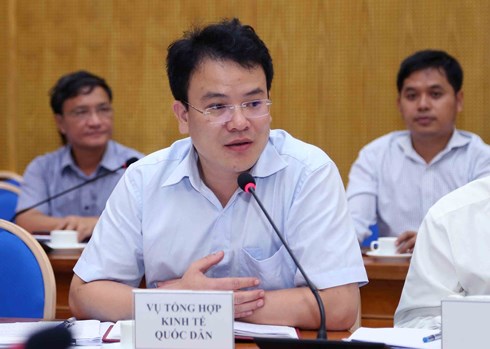.jfif) Opinion
Opinion

Trần Quốc Phương, director general of the National Economic Issue Department under the Ministry of Planning and Investment, talks to Diễn đàn Doanh Nghiệp (Business Forum) about the revised Law on Public Investment

|
| Trần Quốc Phương. — Photo infonet.vn |
Trần Quốc Phương, director general of the National Economic Issue Department under the Ministry of Planning and Investment, talks to Diễn đàn Doanh Nghiệp (Business Forum) about the revised Law on Public Investment
What are the proposed changes to the Law on Public Investment to help speed up the disbursement of public investment capital?
The Law on Public Investment has helped to tackle limitations in public investment activities. However, recent annual assessments on the rate of disbursement of public investment capital revealed the disbursement rate was only between 80-90 per cent. This is also what the Government wants to improve by speeding up the capital disbursement of public investment projects this year. This has become a driving force for us to revise the Law on Public Investment.
The revision of the law will focus on regulations on the decentralisation of power and rights relating to administrative procedures of public investment projects and public investment plans.
What are the most important decentralisation points included in the revised law?
The Law on Public Investment regulates the decentralisation of power quite comprehensively. For example, the assessment of capital sources and capital balance capacity would be decentralised for ministries and localities to help them evaluate capital sources and capital balance capacity defined for medium-term investment plans over five years. This step is expected to help speed up the progress of projects' implementation as it would help cut administrative procedure time.
Under the revised Law on Public Investment, provincial people’ councils and district-level people's committees would be given the right to grant licences to projects under their management.
Also under the revised law, all public service agencies would be given the right to decide on how they use their allocated budget in the course of carrying out their assigned duties and they would only have to report to their direct management agencies instead of reporting to central-level management agencies as before.
For what reason has the Ministry of Planning and Investment and the Government asked the National Assembly to raise the investment cap for key national projects from VNĐ10 trillion (US$434 million) to VNĐ20 trillion?
The investment cap of VNĐ10 trillion for key national projects was set by the National Assembly in 1997. But more than 20 years have passed and the scale of the economy has increased so the increase is necessary.
Through review and calculation while taking into consideration economic growth and the scale of the economy, the Government has proposed raising the investment limit for important national projects to VNĐ20 trillion to ensure the sustainability and accountability of the Public Investment Law.
Transparency and publicity regarding the use of public investment receive a lot of public attention. Are there any changes in the revised law to help increase the transparency and publicity of public investment?
The transparency and publicity of public investment are clearly regulated by the current law. The revised law will take into consideration all ideas or suggestions to make further adjustments. Apart from regulations that public investment projects must be publicised and supervised by the public and social organisations, an important step will be supplemented in the revised law to apply information technology in public investment to help all people and organisations to access information quickly and easily. — VNS